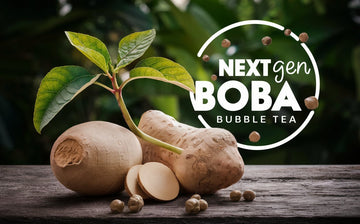Cassava, an unassuming root vegetable, holds a surprising amount of significance. Often overshadowed by its more glamorous cousin, the potato, cassava has been a dietary mainstay for centuries, particularly in tropical and subtropical regions. But this versatile root offers more than just sustenance – it's a powerful symbol of cultural heritage, adaptability, and innovation.
A Journey Through Time: Cassava's Origins
The origins of cassava cultivation remain shrouded in some mystery. Archaeological evidence suggests it was domesticated in South America around 8,000 years ago, likely by indigenous peoples in present-day Brazil and Paraguay. From there, it spread throughout the Americas, becoming a foundational crop for civilizations like the Aztecs and Mayans.
A Master of Adaptation: Cassava's Strength
Cassava's rise to prominence wasn't by chance. Unlike many crops, cassava thrives in harsh conditions. It tolerates poor soil quality, drought, and even moderate frost. This resilience made it a valuable food source in regions prone to unpredictable weather patterns.
More Than Just a Root: The Many Uses of Cassava
Cassava's versatility extends far beyond simply being a source of carbohydrates. Here's a glimpse into its diverse uses:
- Food: The starchy cassava root is a primary source of calories in many tropical regions. It can be boiled, roasted, fried, or ground into flour for various dishes.
- Animal Feed: The leaves and stems can be used as livestock feed, further maximizing its resourcefulness.
- Industrial Applications: Cassava starch is used in the production of biofuels, textiles, and even adhesives.
The Transformation: Cassava Becomes Tapioca
The magic of cassava doesn't stop there. Through a simple process of grating, pressing, and drying, cassava can be transformed into tapioca. Tapioca pearls, a common ingredient in bubble tea and puddings, are derived from cassava starch. Interestingly, the Chinese have a unique name for tapioca – "feizhu," which translates to "starch pearl."
A Legacy of Innovation: Cassava's Continued Importance
Today, cassava remains a vital crop for millions around the world. Its ability to thrive in challenging environments and its diverse applications make it a crucial player in global food security. As the world grapples with climate change and population growth, cassava's resilience and adaptability are more important than ever. So, the next time you encounter tapioca pearls in your favourite dessert, remember the remarkable journey of the cassava root, a symbol of human ingenuity and a testament to the power of nature's bounty.







